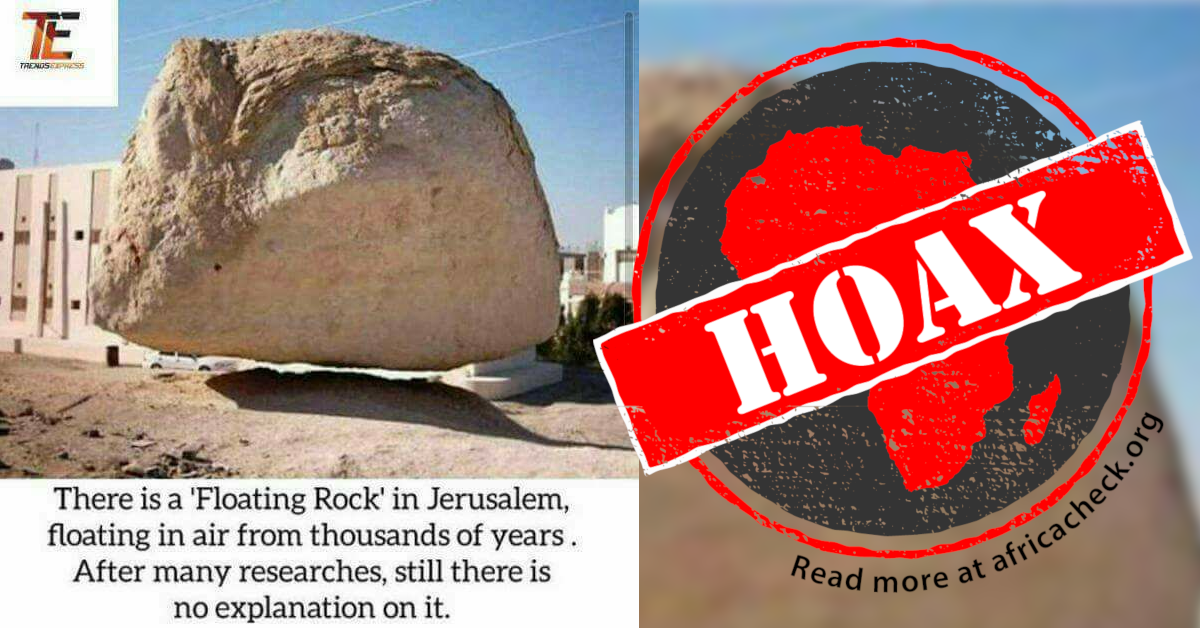A Facebook meme shared in a number of African countries claims to show a rock that miraculously floats above the ground in Jerusalem, Israel.
It reads: “There’s a floating rock in Jerusalem, floating in the air from thousands of years. After many researches, still there is no explanation on it.”
The meme, posted on 6 July 2017, has been shared 5,600 times.
Second version from Saudi Arabia
Another meme uses the same photo, but with the background whited out. This version has a more detailed story, set in Saudi Arabia in 1989.
It claims that a “mujahid” – Arabic for a person fighting in jihad or “holy war” – was shot dead at the rock, and that the rock has floated in the air since.
The meme also claims that fresh blood appears on the rock once a year, on the anniversary of the mujahid’s death.
But is the image authentic? We checked.
Wind-eroded rock formation, photoshopped
A reverse image search reveals that the photo of the floating rock has been online since at least August 2005. It also leads to a YouTube video that clearly shows the rock is not floating.
It is supported by three small pedestals of hard rock that connect it to the bedrock, as the video reveals in detail.
The image in the memes has been photoshopped to remove the pedestals, to make it look as if the rock is floating.
The “floating rock” is one of many wind-eroded rock formations in Al Twaitheer, northeast Saudi Arabia. It can be viewed on Google Maps. – Grace Gichuhi
Republish our content for free
For publishers: what to do if your post is rated false
A fact-checker has rated your Facebook or Instagram post as “false”, “altered”, “partly false” or “missing context”. This could have serious consequences. What do you do?
Click on our guide for the steps you should follow.
Publishers guideAfrica Check teams up with Facebook
Africa Check is a partner in Meta's third-party fact-checking programme to help stop the spread of false information on social media.
The content we rate as “false” will be downgraded on Facebook and Instagram. This means fewer people will see it.
You can also help identify false information on Facebook. This guide explains how.


Add new comment